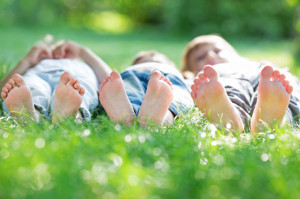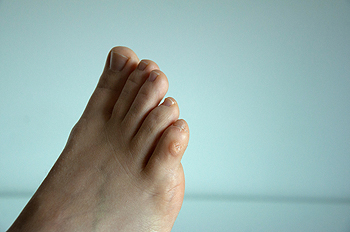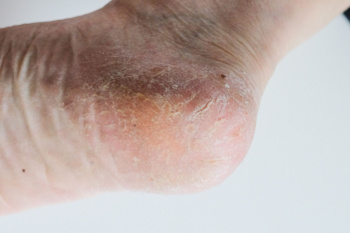
Children can experience several foot conditions as they grow, some of which are part of normal development while others may require medical attention. Hypermobile flat feet are often flexible and painless, typically improving with age. In-toeing, where the feet turn inward, and out-toeing, where they point outward, are common gait variations seen in young children and usually resolve without treatment. High arches, or pes cavus, may indicate a neurological issue if accompanied by pain or imbalance. Additionally, clubfoot is a more serious condition present at birth, where the foot appears twisted out of position and requires early intervention. Observing your child’s foot shape, walking pattern, and comfort level is important. If your child exhibits any of the above foot conditions, it is suggested that you contact a podiatrist who can monitor your child's foot health.
Making sure that your children maintain good foot health is very important as they grow. If you have any questions, contact Patrick Bruton, DPM of Big Country foot and Ankle. Our doctor can provide the care you need to keep you pain-free and on your feet.
Keeping Children's Feet Healthy
Having healthy feet during childhood can help prevent medical problems later in life, namely in the back and legs. As children grow, their feet require different types of care. Here are some things to consider...
Although babies do not walk yet, it is still very important to take care of their feet.
Avoid putting tight shoes or socks on his or her feet.
Allow the baby to stretch and kick his or her feet to feel comfortable.
As a toddler, kids are now on the move and begin to develop differently. At this age, toddlers are getting a feel for walking, so don’t be alarmed if your toddler is unsteady or ‘walks funny’.
As your child gets older, it is important to teach them how to take care of their feet.
Show them proper hygiene to prevent infections such as fungus.
Be watchful for any pain or injury.
Have all injuries checked by a doctor as soon as possible.
Comfortable, protective shoes should always be worn, especially at play.
If you have any questions please feel free to contact our offices located in Abilene, and Brownwood, TX . We offer the newest diagnostic and treatment technologies for all your foot and ankle needs.

Corns are thickened areas of skin that usually develop on or between the toes as the result of constant pressure or friction. Corns on the toes or feet can make walking difficult and painful, especially when the affected area rubs against the inside of your shoe. A defining feature of a corn is its hardened core, which can press into the deeper layers of skin and cause sharp pain or tenderness that limits mobility. Symptoms may include dry, flaky skin, discomfort when wearing shoes, and raised, rough bumps that are painful to the touch. Poorly fitting footwear is a common cause of corns, especially styles that crowd the toes or create pressure points. A podiatrist can provide treatment to safely remove a corn as well as suggest prevention strategies. If you have foot pain that is caused by a corn, it is suggested that you schedule an appointment with a podiatrist for an exam and appropriate treatment.
Corns can make walking very painful and should be treated immediately. If you have questions regarding your feet and ankles, contact Patrick Bruton, DPM of Big Country foot and Ankle. Our doctor will treat your foot and ankle needs.
Corns: What Are They? And How Do You Get Rid of Them?
Corns are thickened areas on the skin that can become painful. They are caused by excessive pressure and friction on the skin. Corns press into the deeper layers of the skin and are usually round in shape.
Ways to Prevent Corns
There are many ways to get rid of painful corns such as:
- Wearing properly fitting shoes that have been measured by a professional
- Wearing shoes that are not sharply pointed or have high heels
- Wearing only shoes that offer support
Treating Corns
Although most corns slowly disappear when the friction or pressure stops, this isn’t always the case. Consult with your podiatrist to determine the best treatment option for your case of corns.
If you have any questions please feel free to contact our offices located in Abilene, and Brownwood, TX . We offer the newest diagnostic and treatment technologies for all your foot and ankle needs.

Dry skin on the feet and cracked heels can be uncomfortable and sometimes painful. Lack of moisture is a common cause, as the feet have fewer oil glands compared to other parts of the body. Standing for long periods, wearing open-backed shoes, and walking barefoot can increase the risk of dryness and thickened skin. Risk factors include aging, obesity, and prolonged exposure to harsh weather conditions. Certain medical conditions, such as diabetes, eczema, and thyroid disorders, can also contribute to excessive dryness and cracking. If left untreated, deep cracks may develop, increasing the risk of infection. If you have cracked heels, it is suggested that you consult a podiatrist who can treat this uncomfortable condition, which may include prescribed medication.
If the skin on your feet starts to crack, you may want to see a podiatrist to find treatment. If you have any concerns, contact Patrick Bruton, DPM from Big Country foot and Ankle. Our doctor can provide the care you need to keep you pain-free and on your feet.
Cracked Heels
It is important to moisturize your cracked heels in order to prevent pain, bleeding, and infection. The reason cracked heels form is because the skin on the foot is too dry to support the immense pressure placed on them. When the foot expands, the dry skin on the foot begins to split.
Ways to Help Heal Them
- Invest in a good foot cream
- Try Using Petroleum Jelly
- Ease up on Soaps
- Drink Plenty of Water
Ways to Prevent Cracked Heels
- Moisturize After Showering
- Skip a Shower
- Keep Shower Water Lukewarm
- Don’t Scrub Your Feet
If you are unsure how to proceed in treating cracked heels, seek guidance from a podiatrist. Your doctor will help you with any questions or information you may need.
If you have any questions, please feel free to contact our offices located in Abilene, and Brownwood, TX . We offer the newest diagnostic and treatment technologies for all your foot care needs.

